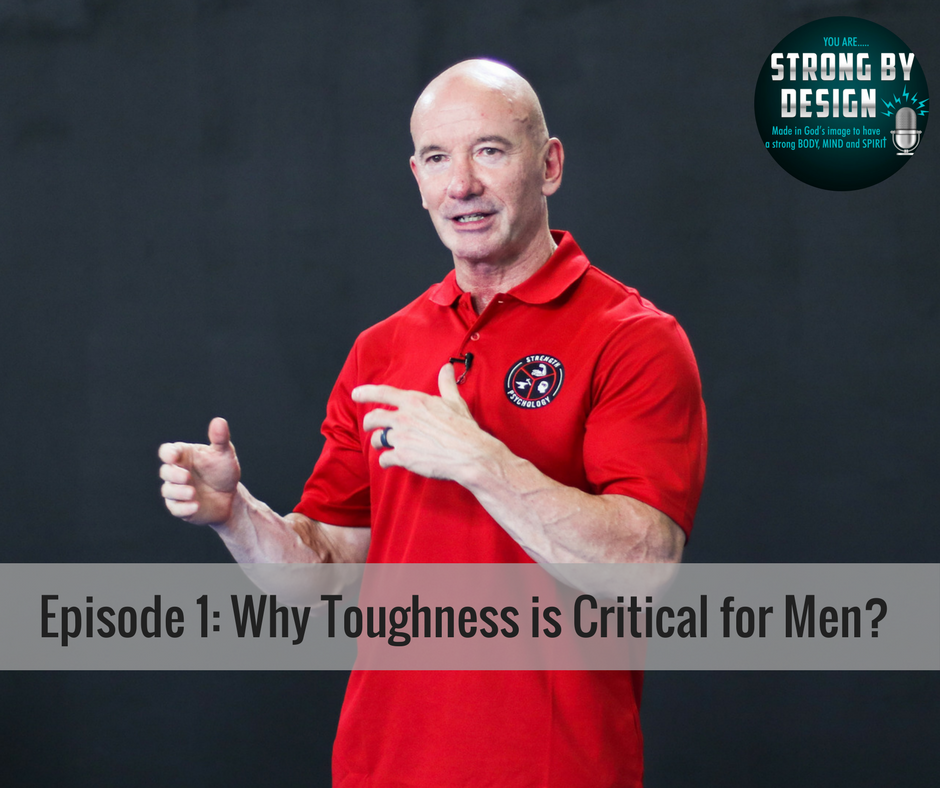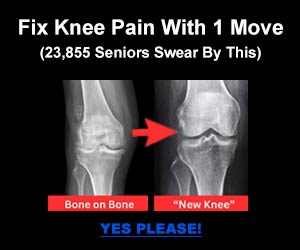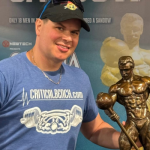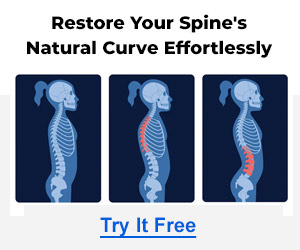The truth is strength starts from within. On this episode of Strong by Design, Coach Chris is joined by a certified tough guy, Mike Gillette. Mike Gillette’s is known as one of the nations top mind training experts. He has worked with several government agencies, law enforcement, and many fortune 500 companies. Coach Chris and Mike discuss the importance of small decisions, habits and some very deep thoughts on the current state of men in our society.
Want the free 7 Worst Testosterone Killers go here! Or text “Testo” to 345345
“A tough person can handle the negativity that comes from the situations life throws at us.”
-Mike Gillette

Time Stamps:
2:40 Mike’s advice to young men (15 to 20 years old) on how to face life
7:50 How choices (big and small) make us who we are
10:50 Why habits are essential
14:30 Is our society filled with mentally weak men?
18:04 Fragmented families and other factors that have played a role in molding todays men
19:12 Why people are so disconnected from each other
25:50 Does mental toughness ultimately decide our physical toughness limits?
34:52 3 Things you can do to handle your personal fears
Connect with Mike Gillette:
Connect with Critical Bench:
Transcript
Chris: [00:00:07] Well good morning. Good Afternoon. Good evening. This is Coach Chris with critical bench. I have with me today, Mr. MIKE Gillette the face of Strength Psychology. And Mike this is your personal story that’s with this very unique product is based on. It’s based on everything that you endured in your life and turns you into the man that you are today. And you have obviously a very interesting skill set to be able to share with the masses to help make them mentally tougher and just tougher in general in terms of how they go about living their life. And so let me just be the first one to say thank you so much for putting yourself out there like that. And we are absolutely thrilled to have you on the line with us today.
Mike: [00:01:02] Well, I appreciate that Chris. It’s a pleasure to be speaking with you.
Chris: [00:01:05] As you listeners probably already know. We have a relationship with Mike. We’ve done other things with him before. Never something quite like this. It was typically more on his physical ability and you know the feats of strength and all that stuff which is you know tied in a little bit to this obviously but this really comes down to somebody who has been through so much in his personal life and then turn that into something that just drove him into all these other amazing things that he did from that being in the Army as a paratrooper to a SWAT Commander, Martial Arts Master Hall of Fame, counterterrorism work with the Department of Homeland Security, bodyguard to Fortune 500 executives.
Chris: [00:01:58] And obviously in this phase of his life doing you know record setting strongman feats of strength. And it’s so impressive obviously you know the resume but there’s no one else quite like Mike and that’s why we want him to be able to answer questions about why is being so important in your life. And there’s no one better on the planet to speak about stuff like this so I have a pretty in-depth questions. We’re going to get right to it here. MIKE, young men obviously go through a lot of tough times from age 15 to 20. They’re trying to figure out what kind of man they’re going to be. During this time, they get their first real job. They have their first meaningful relationship or relationships. They graduate high school. They select a college or potentially join the military or they decide to jump right into the working world sometimes. If you could tell a young man two key things about how to face life and deal with the outside pressures of the real world, what would you say?
Mike: [00:03:11] I like that the there’s a lot of aspects to all that. You know it’s a challenging time to be a young man. And I think there’s a lot of challenges that young men face. With respect to just sort of navigating their way to what being a man needs. If I had two things to say to a man in that age range the first one would be simply think about the kind of man you want to become. We have a culture that sort of fosters an extended adolescence. We have a lot of men who are really more like in their thinking in their in the things that they pursue. And I think young men need to be encouraged to think like men, to think about what it means to be a man. And then number two don’t let anyone talk you out of that. Because we have a culture that doesn’t really encourage men to be men. To make strong decisions, to stand for something you know everyone sort of you know goes along to get along don’t make waves. We’re sort of a controversy averse culture in some ways. We confuse disagreements with being disagreeable. We confuse taking a stand with being judgmental. And as a result we don’t have a lot of rugged individuals. The world needs more strong men and strength starts on the inside.
Chris: [00:04:59] No doubt. No doubt about that. Wow. That’s pretty cool because when you say it sounds so simple. Think about what kind of man you want to become. And b don’t let anyone stop you from being becoming that man. And it’s amazing in life how we sometimes do end up kind of listening too much to what others think we should. You know we should be doing with our lives and don’t pursue our dreams and pursue our manhood. You can say in the way that we want to know that it’s pretty it’s pretty great. And I think that something like you alluded to that it wasn’t that way if you go back 50 or 60, 70 years ago. I think man had to grow up faster. And today, we’ve allowed them to just kind of take their time and it’s worked against us.
Mike: [00:06:01] Yeah. I think there’s a lot of young men who are sort of languishing in boyhood and there’s confusion to a certain degree as to what a desirable male qualities are. And you know it being the strong person is not being a bully. Being someone who is firm in their convictions is not someone who is judgmental or intolerant. But we’re not a culture that really handles disagreements well. You know we can shout at each other until one person just gets tired and shuts up. We don’t really engage in vigorous intellectual debate very well. So a lot of what was once commonplace is just not that prevalent. And as a result I think that when you do see a man who is strong and firm in his convictions they tend to attract a lot of attention. There’s something you know charismatic about that people are drawn to that people
Chris: [00:07:10] Absolutely
Mike: [00:07:11look for leaders to emerge and a leader is someone who is strong who knows what they think, knows what they believe and will communicate that not in a you know unpleasant or an inappropriate way but strongly.
Chris: [00:07:30] Yeah. Wow. Terrific well said. I like it. That’s great insight. Moving on to some other very interesting questions. When I read a question I really read a paragraph. I can’t just write a simple question. It just doesn’t work that way. So not for number two here. I wrote choices define us in life, big ones and little ones. We can look the other way when we see someone else break the law. We can intervene when we see someone getting treated unfairly. We can decide to wake up early and get stuff done or sleep in and play catch up all day long but never actually get there. How closely connected are the big and little choices and their impact on us? And I guess I can kind of stop there or I can just kind of continue because. Well why don’t I continue enough. And we can kind of talk around this topic. Does a minor variable such as sleep really determine the kind of light we are to live? Does looking the other way when someone else has been mistreated make us weak or mentally tough people just better at doing what’s necessary or what’s right even when they may not like it.
Mike: [00:08:53] Well there is a lot of good stuff in there. I am essentially unpack. I like a lot of that. I’m going to get back to the very first part of the question because I think it’s sort of the linchpin upon which everything else rests.
Chris: [00:09:08] Yes.
Mike: [00:09:09] Because I’m more mature fellow which is a polite way of saying I’m getting old. That simply means Chris that I have said some of the same things more than once. Anyone who’s been in a teaching role or in a training role you know has you know a number of the same types of people that they come in contact with. There are certain things that they find themselves in myself included repeating to fresh ears. [00:09:44] And one of them and this goes back to my days when I was a field training officer in my days in law enforcement I would train young law enforcement officers that were brand new fresh out of the academy. And there was a phrase I kept hearing myself repeat and it’s so appropriate in the context of your question and that is, life is choices. And it really is. Everything that we are is sort of the sum total of the choices we make. We make big choices and little choices like you alluded to and how we deal with those choices has everything to do with with who we are the kind of person that we make ourselves into. So it’s not just that the big deal choices where people are clear on what the right course of action or what the wrong course of action might be. But it’s the little things too. I was reading something recently that is on the internet having to do with just habit and why it’s important to make your bed every morning when you get up. Because it creates momentum. It creates the perception of productivity. The first thing you do is take care of some business every day. Then it’s a lot easier to continue that momentum forward and continue to take care of other business throughout the day. Now a lot of time management and self-help experts sort of allude to that that type of thinking but it makes sense. Now, I don’t really care what your bed looks like. But I think there is wisdom in that. We are what we do. That that goes back to Aristotle. Aristotle said that excellence is a habit. We are what we repeatedly do. And I think that’s absolutely the case. Now you gave a couple of examples of people that you know looked the other way or are perhaps more inwardly focused than externally focused. And those are sorts of aspects about how that type of decision making you know can manifest. But when it comes to choices that’s what defines us. You know we, with the old expression on the road to hell is paved with good intentions. I think most of us want to be a good person but being a good person requires you know active participation in life. It requires work. It requires a conscious attention to that which should be attended to. And that all gets back to decision making. So once who make strong choices is a strong person. That’s why I will say strength starts on the inside. Not everyone is physically gifted. I know some very strong people mentally who have some type of physical limitation but they are strong people.
Chris: [00:12:52] Right. Right. Absolutely. Absolutely. Think of the strength its required to somebody who has physical limitations yet they just seem to will themselves to be able to do things. I mean they’re insanely strong that their drive and their willpower and their passion for a life is stronger than somebody else is perfectly healthy in some cases. Yeah I know. It’s very cool. And it’s that’s kind of when I was coming up with that question. I was fairly certain I knew how you would answer it but obviously again with your background there’s always like a cool story you know. And you know why that question resonates with yourself. Very cool. Moving on. I’m sure when anyone from 20 to 40 years old think back to our soldiers. American soldiers that fought in World War II. We think some pretty tough guys right. You know we see these famous statues and stuff like that of soldiers raising the American flag. There’s all kinds of cool things that resonate I think with men and a tough soldier. Guys that had no choice but to fight a real world threat on the other side of the world but yet today we’re still dealing with threats from the other side of the world. But since the life we live today is so different from our grandfathers and great grandfathers’ generation. You know this is like the world we’re in now the computer age. Is it safe to say that today’s world is filled with mentally weak wimps? And I know that sounds a bit harsh but it just feels as though the young man in the world in the world today just don’t have the mental toughness that existed a few generations back. Could you give some insight maybe on that question?
Mike: [00:15:01] OK. The. I mean it’s it is a harsh sounding diagnosis but that doesn’t mean that it is necessarily incorrect. I think that if you know we’ve had people from the 40s you know basically anyone from like 17 year olds you know if you guys in their mid-20s that were you know being drafted or volunteered you know en masse and fighting for extended periods would be limited equipment the wrong kind of clothing you all of the things that they endured whether it was wintertime or the jungle. It was bad regardless. If they were to cast their youth towards the young men of the future the young men of today in this case. I think they’d be a bit shocked.
Chris: [00:15:54] Yeah.
Mike: [00:15:56] And it’s not to say you know that we’re sort of you know making one better or worse but things are different. Regardless of your perspective on our you know technology base you know highly evolved and a very sensitive society. It’s certainly different than how it was. And better or worse, it’s something I leave to social critics or theologians. But it’s different. And it’s different simply because I think that young men are more disconnected from certain parts of themselves than we used to be. And part of it is just sort of the way that society works. People are a lot more connected. You know a few decades back you know neighborhoods were neighborhoods. People know each other. There was a lot more social connectivity. Face to Face. I mean and I think it was more of a sense of collective responsibility in a given neighborhood for how things were going on. If there was a problem in the neighborhood it wasn’t just the person who was suffering from vandalism or whatever the issue was the entire neighborhood would feel compelled to take some kind of action because everyone felt connected in that way. Conversely, if I mean this is something I remember from my own childhood if a young kid in the neighborhood was acting now was doing something inappropriate. It was not inconceivable for a unrelated adult to not only yell at them but possibly you know give them a smack on the butt. And no parents were getting offended. No one was threatening to sue anyone else for touching my kid. It was just sort of an expectation. Because the parents you know would expect similar participation if their kid was the one that was that was acting inappropriate.
Chris: [00:18:01] Absolutely.
Mike: [00:18:02] I think that there’s that aspect. I mean we just we socialize differently. And you can look at a lot of factors you know people that work for the same company for the same extended periods that they used to. There’s a lot more vocational transition time that takes place. People move around a lot more. There’s the whole issue. You know families have been you know redefined and redefined much more fragmented. So a lot of the things, the factors that were present that made people a certain way are not present to the same extent that they used to be. And you know good or bad, that’s the reality of it and it changes how what form society sort of takes in a collective sense. Then there’s that you know the technology piece. I mean we’re ultimately very disconnected Chris from our physical selves in a way that is really unprecedented. And what’s ironic is I have read articles from the beginning of the last century 1910s 1920s from people who were bemoaning the physical condition of young people in school. And how if we didn’t get a handle on that we would not be strong enough to fight are our enemies from abroad whoever those enemies might be. Kennedy picked up that theme some you know 40 50 years later bemoaning you know a further physical decline and you know promoting the President’s Council on Physical Fitness and so forth. So back when everyone seemed to be in really good shape people were complaining about how not in shape kids were. Which is unbelievable compared to now what you actually see is a redefining of the physical shape of young people. You know the prevalence of crap that is both tasty and convenient to prepare has changed how people look. And that’s not a body shaming comment whatever that phrase means. If you’ve got a physical issue because of what you put in your body that’s reality. It’s not anyone being judgmental. It’s something that should be fix. It’s in the best interest of the person afflicted. And so we’re sort of afflicted by the convenience of certain types of food. The convenience of not having to do a whole lot. Everything we used to do with a lot more physical. I mean we’ve engaged with the outdoors. We thought it was fun. Nobody wants to go outside anymore. You know it’s hot it’s cold there’s bugs out there. There’s nothing to compete with my videogames outside there’s no place to plug them in. It’s just different. So I think that, between the sort of move maybe that’s the wrong word but we’ve definitely evolved to a more sedentary culture. We’re putting a lot more crap in our body. You know tasty though it may be. It’s not helping us. And then when you take away some of these sort of institutional war you know social framework pieces that used to sort of create this sense of I don’t know. Community cohesion, where everybody’s kind of off on their own. It just, it has fundamentally changed the landscape. And if I don’t feel connected to you then I don’t feel compelled to intervene on your behalf. So when we see people not stepping up and doing things that require a little bit of backbone. It’s not just because you know that they may be weak or frightened I just think we’re fragmented. We’re emotionally fragmented from each other in a way that’s sort of unique. And I think it’s a very recent sort of phase of how our society functions. Now is kind of a high level response and that’s what you’re looking at. Those are the types of factors. I try to be clinical about this it’s not just all these kids today.
Chris: [00:22:48] Right.
Mike: [00:22:48] I don’t want to sound like another crotchety old person just saying you know kids are weak and they don’t know the value of the dollar or the value of hard work. And on and on. Because I do think that things have changed and I think there’s a variety of layers to why that is the case. And it’s not a question of you know good versus bad. We all have our opinions on what good vs. bad is but there’s no question that we have a much different world and the people populating it here in our own country are different than you know our immediate ancestors.
Chris: [00:23:25] Yeah there’s no doubt about that. Yeah, I’ve learned one thing with you Mike that I never try to anticipate the direction. The answer’s gonna go because I just you know. I’m talking with somebody with a fairly high IQ who’s also really educated. I know it’s going to be a much grander response than what I what I initially thought. So that was fantastic and I do think it all really a lot of it comes down to the men in the family. It starts with the patriarch and I think if you have that strength from dad in the family that can really create that cohesive family unit. And if you have enough of those types of dads you know in a particular neighborhood that can become a probably a pretty cool neighborhood. And I think that’s where it starts. And if we had more of that going on then we would probably be able to turn some things around you know.
Mike: [00:24:32] Yeah and there’s there are some directions that that observation can go to. But I think you’re absolutely correct you just said.
Chris: [00:24:40] Yeah. That’s obviously the uneducated non nonclinical response to it. Yeah but that doesn’t make it any less true. That’s right. Now all guys know the guy who is more talented than anyone else in their school growing up and I’m talking elementary junior high or high school. He could do anything he wanted physically and it seemed almost effortless compared to you know his buddies. His talent for most things physical was just superior to everyone else’s. But at a certain point hard work beats talent when talent doesn’t work hard. And you’ve probably heard that saying before it’s kind of a common phrase in some gym atmospheres. So if that’s true, is mental toughness the most important aspect for any athlete attempting to become truly great at what they do. Does being mentally strong really determine the limits of our physical ability.
Mike: [00:25:55] Great question and the short inelegant answer is yes. The longer answer is a longer explanation of why that’s the case. I’ve seen this in a recently into sort of diverging areas. The first one you use the example of that guy we know growing up or maybe there’s a couple of those guys you know the guys that are just literally you know came out of the shoe superstars. They’re fast they’re coordinated it’s like what can’t they do. And I was almost fascinated by those people when I was a kid. Because when I was a kid you know small weak, not connected to the realm of athletics in any context. And they just seemed so sort of beyond and I could never really figure out why them why not me. You know what is it. You know is it the Wheaties for breakfast thing. I watch the commercials when I was a kid and what I noticed is over time and again I’m speaking from the perspective someone who is now 53. I run into some of these guys from a lifestyle or you know from high school years periodically. And I see some of these guys that were superstars. You some of these guys went on to be D1 athletes and I look at them now and you would have no idea that they were ever physically gifted. Because all you see is lots and lots of neglect. They are walking around being unremarkable to the point of you know being overweight you know or they’re hobbling around you know they’ve just got the infirmities that we associate with disuse. You know I haven’t exercised in so long that I’m walking like an old man now. These are guys that you know for doing 52 53. Like I am there way too young to be looking and acting the way they are. I don’t know. But my informal diagnosis is that if everything always sort of came easy to you in the physical realm then I don’t know how much value you placed on that. I don’t know that you ever understood what the gift was. And that at some point the gift needs a little care and feeding. So for people who are just complete naturals and we all know these people you know male, female we’ve been around them. If the person has never had to really push to have that it’s kind of like oh what’s I’m going to use a strange analogy. Every so often a boy band comes along. It’s been happening for generations. They’re super popular and then they’re not. And it has nothing to do with anything other than the cyclical nature of the entertainment industry you know and the demographics the ages of their core audience and how quickly that audience shifts from one thing to another saying. So there’s an intense period of success and then there’s just crickets. And if you were a member of one of those boy bands. How perplexing would that be because you did the same thing for a period of time and then suddenly you were hot. You continue to do the same thing and suddenly you weren’t hot anymore. You kept continuing to do the same thing and no one cares. You don’t really understand what it was that made you successful. I think that people who are physically gifted can be in that same sort of conundrum. You know I was always this, I was always that I was looked great and now I look like poop. What happened.
Chris: [00:30:06] Right. And no one cares about me anymore. I’m not a big deal anymore.
Mike: [00:30:13] Yeah that’s true to that. That another layer said layer that you might wear on top of it. But compare that to somebody who was good enough physically but mentally would just outwork everyone else. You know just go and go and go. And those are the people I think where it sticks. Where you know you look at them today, they still look as good as any 50-year-old as any 60-year-old has the right to look. Because they beat it into themselves. You know they’ve forged themselves into that athlete you know that person who could do X Y Z and the person who can forge themselves into that is mentally tough athlete. And now here’s the other sort of disparate example. I’m presently working with a gymnastics club. It’s a high level club. One of the top 10 clubs in the nation. They’ve got to watch a lots of. And these are girls which for people who look at the scary pictures on the internet it might be hard to fathom but they’re very tough and they’re not afraid of me anymore. These are kids you know 14, 15. They already have their D1 scholarships in the back. They’re really gifted but the ones that truly excel are the ones who are mentally tough. And you can look at some of these athletes and it’s an interesting set. We look at a person’s book or their DVD and you know this person super-strong and they’re super muscular and say this is what I did to get this. And OK great I’m going to try that out. What’s interesting if you look at the world of competitive athletics what you typically see are a group of people who do all the same thing. And in the world of gymnastics you have a group of athletes they all do the same thing everyday day in day out. Yet you still have a diversity of body types because there’s no getting around that. Now you have plenty that appear to be the clichéd gymnast physique. You know short, dense, solid muscles you know kind of wide. They look like they can pick up a balance beam and beat you with it. And then there are some that sort of defy that. There are some that are kind of skinny. There are some that don’t really look that strong but they can still you know go and do everything else. Those are the kids who just want it so bad that they are wringing every ounce of potential from their less than ideal physiques. That comes from mental toughness. Those are the kids that are going to just get themselves there anyway they can if the desire is tremendous. Now of course there is that perfect storm athlete. Every sport has these where you know physical giftedness is combined with a purifying work ethic. And when you add in it then you have yeah. Yeah. Then you don’t want to compete against those people and they will just be unstoppable.
Chris: [00:33:36] Yeah it is actually that, that person that just at all levels. And I you know I’m a big follower of all kinds of sports. And you know I love college basketball. I mean that’s the person that just excel at their high school. Dominated in college. And then let’s just say they went on the NBA and they just there are you know just crushing it right from the get go. It’s just that perfect storm that you know comes. You know it’s your Michael Jordan is your Tiger Woods type of guy. You know it’s just they’re just here and there. And it’s easy to pick those two out. But you know there’s obviously a lot of others that are you know in the current world of sports. Well and moving on just because you know I don’t want the people to not hear about you talk about fear. Because fear is a huge part of mental toughness. And so my question is the topic of fear is so compelling because we all have them. We all have fears on some level. Some of us fear seemingly harmless things like performing karaoke, public speaking or interviews like this. Some of us have real powerful forms of fear like a fear of heights, fear of confrontation or snakes. Fear can be physically dangerous to us or simply emotional. But both of us both can be very real to the person feeling them. What three things and you know see if you can come up with three things quickly. Can someone tackling a fear based situation do right away to help them deal with that fear and potentially work through it and overcome it.
Mike: [00:35:44] Great question. A challenge to sort of distilled down to something back work. Just because there’s sort of a myriad of issues that can feed into that. I think that when we’re talking about fear Chris, the first thing that’s important is to be very honest with oneself. And it’s a fears is a challenging topic particularly for males. Guys are not always honest with themselves. They particularly when it relates to things that they perceive as shortcomings. And I don’t think that there’s any guy who has a fear of something that they’re proud of. Hey did I ever mentioned of what I’m afraid of. It’s a long list and guys are not going to initiate that conversation and not get married.
Chris: [00:36:41] That’s I hanging out at the bar having a beer with your buddy talking.
Mike: So the first thing is to open yourself up to what is true. And it is true. Everyone has things that they are afraid of. Even the most hardened courageous men among us have something that they don’t want to lose. So when that’s the case you know I’m not afraid of anything. Well you have called, you have a spouse, do you have kids. Oh yeah, ok. It’s sometimes it’s so external to you, you don’t think about it. But there’s something there and there’s generally a few things for most people. So understand that it exists. Then identified what specifically exists. What is it that we’re afraid of? And some of them are kind of rational. You know we have members of the armed forces who are deployed overseas in harm’s way. Do you think they’re afraid? Of course. Is that still reasonable. Of course it is. If it were absent might that indicate a potential problem. Yeah. Somebody who is not afraid in combat is prone to getting themselves or someone else hurt. Because they’re not really acting in accordance with the risks involved. So we need to sort of open ourselves up to the existence of fear and we need to identify what our own fears are or if there’s a couple of them, what’s the one that really seems to be getting in the way. And then when we know what fear is getting in the way. And as you pointed out Chris, it can be things that are fairly innocuous. You know the fear of public speaking; everyone use I use that frequently as an example it’s a good one. And I think that the best saying is from that point on is to figure out well what’s the plan here. How are we going to deal with this? In some people have the goal of making fears go away. I think that’s unrealistic. I think that your mind also realizes it’s unrealistic and there’s a thing about dealing with anything mind related and that is you cannot lie to you. Your mind knows when you are BS-ing it. When people say things like these are lonely people but when people say things like well you know you just have to think positive. You just have to do this thing or that thing. If it doesn’t feel like that’s the right thing for you or that’s realistic for you. Your mind subconsciously is going to reject that notion. So you can’t lie to you. You can’t act as though everything is OK. If it’s not okay you need to at least address it. And I think that one of the sayings that more people are afraid of than they realize are negative, well let’s not even call it negative. Let’s call them difficult emotions. That’s a phrase I learned from a hypnosis trainer named Craig Siegel and I like a lot. Difficult emotions. Because all emotions have you know something potentially to offer in terms of instruction. So people don’t like to feel fat as an example. People will do any number of things to avoid feeling sad you know they drink. They distract themselves with choices that may not be you know healthy for them in the long run or they just do immersive activities to keep their minds engaged. You know there’s video games or whatever it happens to be.
Chris: [00:40:56] Just kind of sidetracked themselves from that and whatever it is.
Mike: [00:41:00] It’s kind of a little temporary anesthesia from you know whatever is going on because they don’t want to feel sad. I propose something kind of radical. If you’re experiencing a difficult emotion maybe you could just experience it.
Chris: [00:41:23] Wow.
Mike: [00:41:25] Hey there it is. If your girlfriend that left you then you feel bad. Maybe you should, because that reflects that this was important. If the first inclination is well guess, I have to go and get drunk for three days and just kind of numb myself out. Well I don’t think there’s a lot of learning there. I don’t think that whatever it was that may have led you her leaving you know I mean it may have been because she is a crappy person. It may be because you’re a crappy person. It may be that you were not well suited for each other but you’re not going to come to any sort of sense of clarity. If all you do is hide from the unpleasantness. We as a culture Chris do not in these modern times do not do difficult things well. We tend to avoid them. And then we tend to rationalize our inability to confront difficult things whether it’s emotional or physical earlier. With all sorts of you know very you know compelling well-reasoned sounding ways. But the bottom line is we don’t do difficult well and that’s not the hallmark of a tough person. A tough person can handle the negativity that comes from you know some of the situations that life will throw at us. You know the lost that one has to deal with when one of love one dies. You know sometimes you just have to experience difficult emotions. People don’t handle things like that. Because you know that separation. Those are inevitable things that that’s just a byproduct of life on this planet. And if you cannot deal with that then eventually you’re going to find yourself shrinking away from other things that cause disappointment and many things that can cause disappointment are things that are amazing if they work. You know one of the reasons that I’ve done some things which are unique is because I’m not talented, I’m not necessarily smart, I just I can take it. I can handle whatever the cost is, whatever the pain is. I can endure things. And I believe it is the capacity to endure that sometimes is the greatest talent of all. Because it allows me to hang on long enough until I get that thing.
Chris: [00:44:14] Right. Yeah. And if anyone listening hasn’t read your personal story on the psychology of strength page then you know they should because that would give them a little bit of a blueprint for your ability to endure. Because of what you endured for so many years of your childhood and even in your early adulthood. And when you go through so many difficult situations and then it just prepares you for the next difficult situation and you just handle things better.
Mike: [00:44:55] Everything is context. You know I had a boss about 10 years ago who used to be a squadron commander for Delta Force. Anyone doesn’t know what that is. That is the Army’s top secret anti-terrorism force. Sometimes they call it the unit when they make a TV show about it now because they made a TV show about how top secret is really not there. But anyway, when I worked for this guy after he had retired from active duty service. I found that he was not particularly tolerant of excuses or much of anything that didn’t have to do with getting the job done. And people would approach him and they would say well you know I’m dealing with this or dealing with that. And he said look, this was in Las Vegas. So generally he would look outside and the sun will be shining because that’s what it does in Las Vegas. The sun is shining and no one is shooting at you. I don’t want to hear about it. So depending on your life experience some things can seem like a big problem. For him, many things didn’t seem like a problem at all because of his own life experience. So when you’ve confronted things that are difficult, you are mentally strong. The one were talking about fear to sort of tie that up. What’s important is to acknowledge its existence. Identify what specifically you’re dealing with. Because until you do that you’re not really going to be able to formulate a plan for handling it you know. Maybe it’s something that has to do with your own personal safety. But so many times it’s just something that has to do with your comfort level. You know your ego. You know saving face is doing things that are unpleasant or difficult and if they’re merely unpleasant well that’s doable. You know we can handle that. We just have to choose too. And if it involves dealing with something that’s unpleasant then deal with it. You know take it, you can handle it. We’re just out of practice.
Chris: [00:47:12] That’s right. That’s exactly right. We just have to practice by putting ourselves in those situations and then realizing once we come out the other side, oh wow how many times you hear somebody who did something they had a strong anxiety about a serious nervousness about and they go it really wasn’t that bad afterwards.
Mike: [00:47:33] I can’t believe I waited this long.
Chris: [00:47:36] Now they’ve built it up into their hand into this monster that was like something they could not accomplish and then oh that really wasn’t that bad. Why wait the whole year like stressing myself out about that and then boom. So I mean and a lot of things in life are that way. And now that’s great. I really appreciate your insight on that because I know as I stated we all face fears on some level and to be able to listen to somebody who’s dealt with his own set of fears and how he’s come out on the other side and dealt with them and overcome them and moved on. That’s fantastic. You know, thank you. Obviously we could talk for hours. We already have. And I’d love to continue the conversation. I just really appreciate your time and your ability to really dissect some of these questions. And I know I’ve gotten a lot out of it. Enjoyed it. I hope the listeners all have and spoke with Mr. Mike Gillette of strength psychology is one in a billion. There’s really no one else like him and we really hope that you’re able to check that out and really hopefully change your lives because of all the wonderful things and tools that Mike was able to give you. Thank you so much Mike for your time.
Mike: [00:49:01] Thanks so much Chris.

















































































